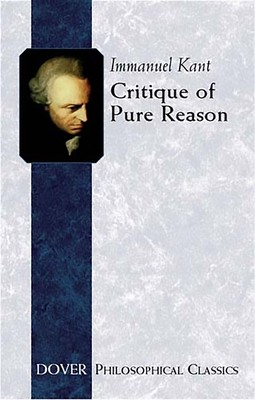
- We will send in 10–14 business days.
- Author: Immanuel Kant
- Publisher: Dover Publications
- Pages: 480
- ISBN-10: 0486432548
- ISBN-13: 9780486432540
- Format: 13.5 x 20.9 x 2.6 cm, minkšti viršeliai
- Language: English
- SAVE -10% with code: EXTRA
Reviews
Description
In his monumental Critique of Pure Reason, German philosopher Immanuel Kant (1724-1804) argues that human knowledge is limited by the capacity for perception. He attempts a logical designation of two varieties of knowledge: a posteriori, the knowledge acquired through experience; and a priori, knowledge not derived through experience. Kant maintains that the most practical forms of human knowledge employ the a priori judgments that are possible only when the mind determines the conditions of its own experience. This accurate translation by J. M. Meiklejohn offers a simple and direct rendering of Kant's work that is suitable for readers at all levels.
EXTRA 10 % discount with code: EXTRA
The promotion ends in 23d.06:31:39
The discount code is valid when purchasing from 10 €. Discounts do not stack.
- Author: Immanuel Kant
- Publisher: Dover Publications
- Pages: 480
- ISBN-10: 0486432548
- ISBN-13: 9780486432540
- Format: 13.5 x 20.9 x 2.6 cm, minkšti viršeliai
- Language: English English
In his monumental Critique of Pure Reason, German philosopher Immanuel Kant (1724-1804) argues that human knowledge is limited by the capacity for perception. He attempts a logical designation of two varieties of knowledge: a posteriori, the knowledge acquired through experience; and a priori, knowledge not derived through experience. Kant maintains that the most practical forms of human knowledge employ the a priori judgments that are possible only when the mind determines the conditions of its own experience. This accurate translation by J. M. Meiklejohn offers a simple and direct rendering of Kant's work that is suitable for readers at all levels.


Reviews